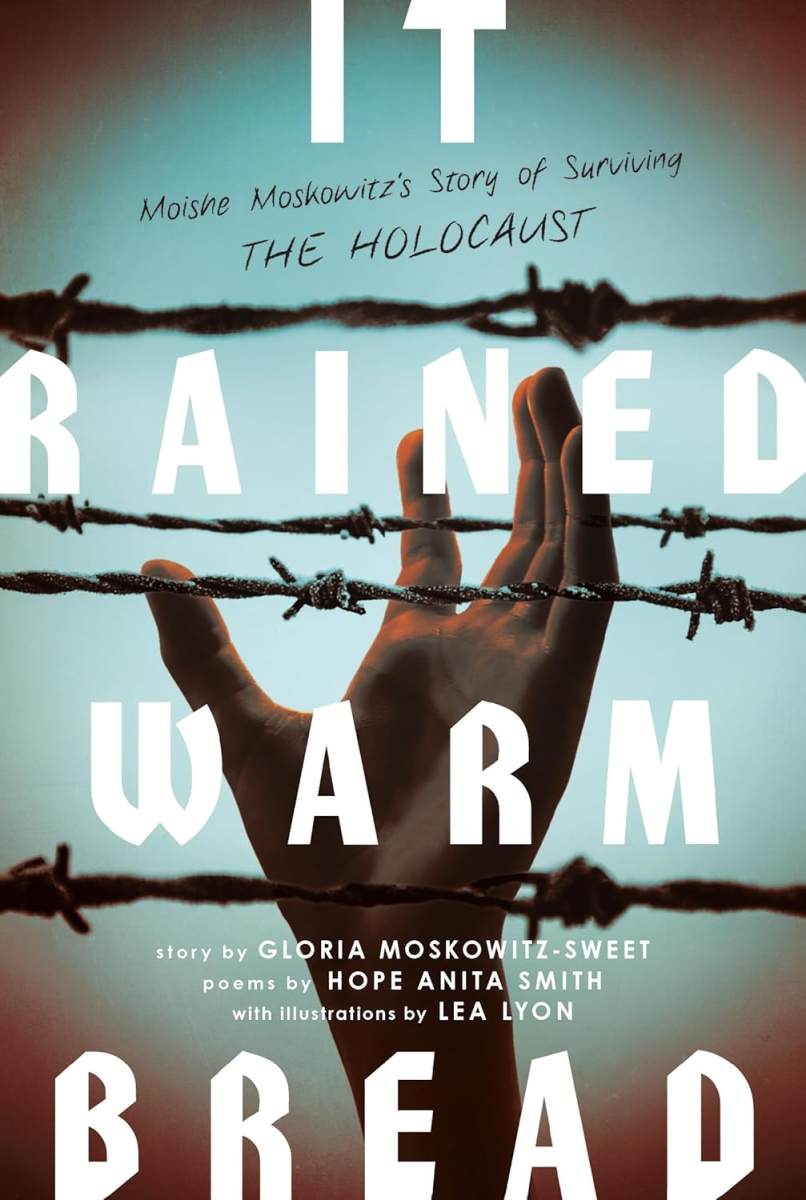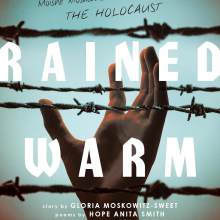It Rained Warm Bread

![]()
It Rained Warm Bread by Gloria Moskowitz-Sweet
Summary
Moishe was thirteen when the Nazis invaded Poland in 1939 and he was sent to Auschwitz. His home was ravaged, his family torn apart by illness and abduction. Years of brutality drew on as Moishe moved from one labor camp to the next. Finally, towards the end of the war and at the peak of Moishe’s deepest despair, a simple act of kindness by a group of courageous Czech women redeemed his faith that goodness could survive the trials of war: That was the day it rained warm bread. (Goodreads)
Thoughts
It Rained Warm Bread features the real story of Moishe Moskowitz and his account of the Holocaust as a young, Jewish boy. Set in Poland of 1939, the narrative is told through 65 lyrical poems that capture his journey from a life of innocent normalcy to the unimaginable horrors of war. The book’s poetic form and gloomy illustrations further increases the despair found in the conflict, heightening a sense of depth. By blending history, storytelling, and imagery, the book gives a deeper understanding to the dreadful events endured by many.
A central recurring theme present in the book would be the hope found amid the despair. It showcased the resilience of humans and their belief that everything would work out even in times of war. Moishe also significantly lost his innocence and naiveness as the story progressed, highlighting how his rapid character development was greatly influenced by the conflict around him. This theme is a common element in war-based literature, emphasizing how children are forced into adult realities too soon.
In general, the pacing of It Rained Warm Bread was perfect for a novel of its length. Due to its format in free verse poetry, the story is told in a fast but steady rhythm. Each chapter moves quite quickly through each event, jumping from locations like Moishe’s home, the ghettos, then the labour camps at a speed that is easy to follow. Though the book could be read in the span of less than two hours, the emotional moments are still presented with that innate, sense of depth.
The characters had an extremely emotional feel to them instead of a fictional character. The protagonist's thoughts were simple yet realistic, reflecting the traits of ordinary people. His internal world is vividly described with memories of his childhood, dreams, and experiences in the novel that make him a memorable child narrator amongst Holocaust literature. Moishe’s family also leave a similar impression, feeling more like a living symbol of love and humanity.
Altogether, It Rained Warm Bread was a masterfully written book that described the horror of the Holocaust, yet turning it into a deeply personal and emotionally present story of survival. Due to the imagery, metaphors, and poetic depictions of the war, I would give this book a 5/5. Overall, there was not any major point that I thought did not flow well in the novel, and is definitely a great read for people of all ages.
Reviewed by Angela Liu
